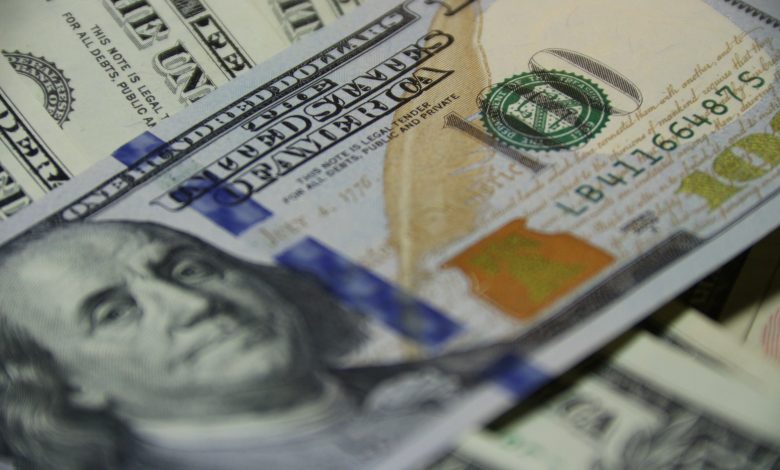The 5 Best Free Money-Management Apps

Setting a budget and tracking your spending has never been easier thanks to a variety of apps that safely and securely show you every last detail of your finances. The only issue is an over-abundance of choices available to you. Your devices can quickly become bloated with apps that never get used, so instead of downloading and not touching 15 different apps, here are the best free money-management apps which can make it simpler to save money, to budget, and to invest.
Many of these apps perform similar tasks, so you’ll want to find out what makes each one unique and potentially download multiple apps to see which interface is the most useful. The best free money-management apps will provide the following benefits:
- Update your credit score
- Track your spending by category
- Make it easy to create savings goals
- Automate your savings into a savings account
- Track your cash flow from one month to the next
- Show your net worth

5. Every Dollar
From financial guru Dave Ramsey comes the Every Dollar app. It allows you to track your transactions, create budgets, and connect your financial accounts. The app is based on Dave Ramsey’s “Baby Steps to Wealth,” so if you already enjoy Dave Ramsey or have used his programs in the past, this may be the perfect place to start.
4. Wally
Sometimes, all you want is to create a budget. If that’s what you’re after, Wally is your app. But Wally isn’t just a budget app. You can also link all of your accounts and receive insights into spending patterns. You can then track your budget and how it’s being spent on the go. Wally will also go up to two years back to provide spending insights on linked accounts.
A unique aspect of Wally is that it will also link up any digital wallets or foreign currency accounts you may have.
Wally conveniently provides a calendar at the top of the app, which makes it easy to go to a specific day and see what transactions took place from any account. You can also track joint accounts and create group budgets that you can track together with your family.

3. Personal Capital
The Personal Capital app provides you with a real-time look at all of your financial accounts and gives you ideas for how to increase your overall wealth.
Personal Capital is free because they try to up-sell you on using their financial adviser services. But Personal Capital is not pushy about the paid portion of the app, and you can ignore that option while still taking advantage of tracking and tips for your financial accounts.
Primarily, Personal Capital focuses on your investments and hopes that your use of the app will lead to further financial planning using paid services.
2. Clarity Money
The way Clarity Money sets itself apart from the rest of the free finance tracking apps is through automation and AI learning. Clarity Money will automatically organize your bills and track your expenses, helping to keep you accountable for your spending. The app can also cancel subscriptions for you that you aren’t using and will monitor your credit score.
Clarity Money makes it easy to track all of your spending at a particular place over a period of time. This kind of tracking can be helpful to illustrate just how much money you’ve spent at a retailer over the past year.
Clarity Money is backed by Goldman Sachs and provides the option to automate your savings into a Marcus online savings account. While there’s no guarantee that Marcus will provide you with the highest yield on your savings, it’s a unique option that helps to further incorporate the app into your financial ecosystem.
1. Mint
Similar to Clarity Money and Personal Capital, Intuit’s Mint provides a real-time look at all of your financial accounts and provides suggestions and advice for improving your positions. Mint receives the top spot on this list because of its easy to use interface and breadth of options.
One aspect that sets Mint apart is a marketplace that allows you to search for new credit card opportunities, personal loans, investments, and saving accounts. Mint makes it easy to set goals, track upcoming bills, and also provides you with a credit score.

Honorable Mentions: Acorns, Credit Karma, Coupon Sherpa, and YNAB
Acorns does not qualify for this list because it technically is not free, although, for the basic plan, the cost is just one dollar per month. The way Acorns works is that you link up as many credit cards or bank accounts as you’d like, and when purchases are made from those accounts, the remainder is rounded up to the nearest dollar and transferred to Acorns to be invested. Acorns also partners with brands to create a system they call “Found Money.” Each brand will have a dollar amount they are willing to add to your Acorns account if you make a purchase with them.
Credit Karma is a fantastic free app for tracking and increasing your credit score, but it is not technically a money management app. I believe it’s worth including in this list, though, as a free app that can significantly help you with your financial life.
Coupon Sherpa is the ultimate coupon app. It conglomerates every coupon you can imagine and makes them accessible in one place. Using GPS, Coupon Sherpa finds local stores and adds any available coupons. As long as you have service, you can present a coupon from the app while out shopping or dining. Coupon Sherpa makes it simple to create lists of favorite areas and will alert you of upcoming coupons that will soon be available for use.
You Need a Budget (YNAB) is a unique budgeting app that has the goal of putting your dollars to work for you. If you use the savings practice of sinking funds, YNAB may be perfect for you, as it takes each dollar and puts it in a bucket for a specific use. The reason YNAB doesn’t make this list is that it costs $6.99 after the first month.



